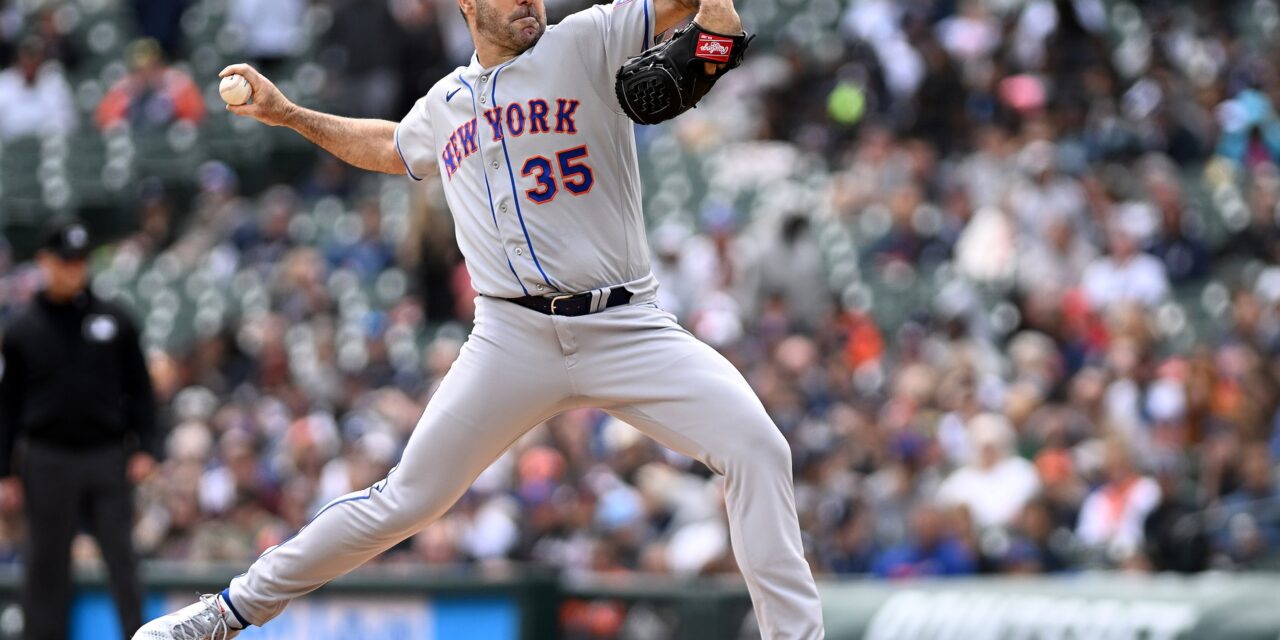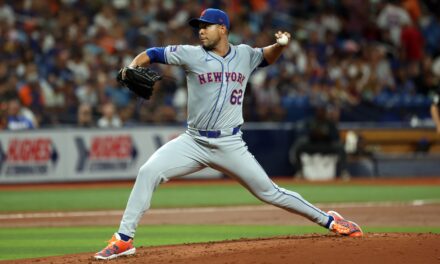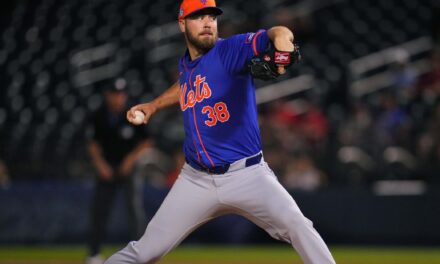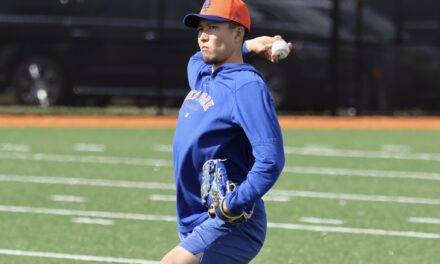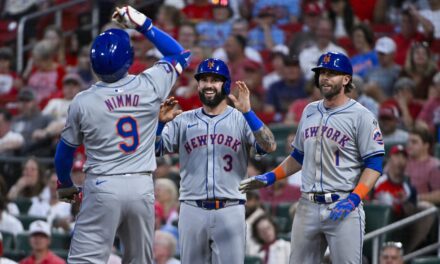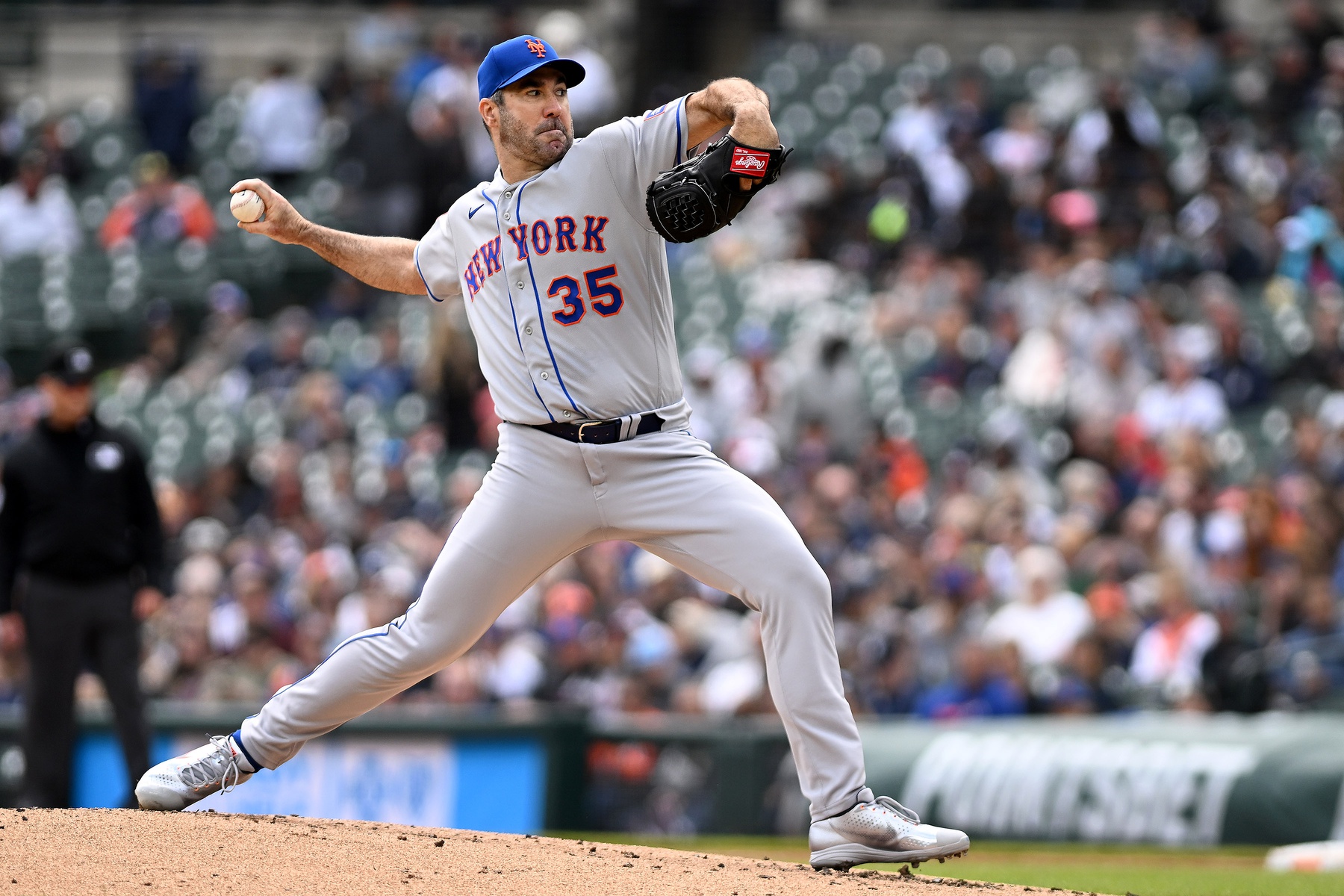
Lon Horwedel-USA TODAY Sports
After missing the first couple weeks of the season due to a shoulder injury, Mets’ starting pitcher Justin Verlander finally made his debut in Thursday’s contest at Comerica Park against the Detroit Tigers. Verlander, 40, is in the initial year of his hefty two-year contract that he signed in this past offseason that is paying him just over $43 million annually. As a result, the Mets were expecting top notch production from the 2022 American League Cy Young Award winner as they looked to avoid becoming victims of a series sweep from the Tigers.
Verlander’s first inning was characterized by a number of hard-hit balls. After retiring Zach McKinstry on a sharp fly ball to center field that traveled at an exit velocity of 100.3 mph, he allowed back-to-back home runs to Riley Greene and Javier Báez. These long balls had exit velocities of 106.8 mph and 103.5 mph respectively. While he retired the next batter with his first strikeout as a member of the Mets, Spencer Torkelson then hit a 102.3 mph lineout that was caught by Mark Canha in left field.
Although things were not looking good for Verlander at the start, he was able to bounce back with four consecutive shutout innings. After retiring the side in the second inning, Verlander ran into some trouble in the third inning as he allowed a walk and a single. However, he was able to narrowly escape any further damage by striking out Nick Maton for the second time in the game.
In the two innings that followed, Verlander seemed to regain some of his dominance as he struck out two batters in the fifth inning to finish off a respectable performance. For his final line, he tossed five innings with five strikeouts and one walk while allowing two earned runs that both came in the first inning. All things considered, Verlander was effective in his debut with the team. Although he allowed a few hard-hit balls early in the game, that could be attributed to the fact that this was his first start after returning from his injury.
In his postgame interview with SNY, Verlander acknowledged that he felt good physically during his start. In addition, he acknowledged that his velocity increased as the game progressed: “It felt like as the game went along, the velocity started to come a bit too.” This could be an explanation for his unsatisfactory first inning as he was trying to find his groove in the beginning.
Verlander averaged 95.0 mph on his fastball, which is the same figure from his award-winning 2022 season. That said, this is a good sign for Verlander’s future starts as his four consecutive shutout innings seem to be more indicative of his pitching ability than his rough first inning.


